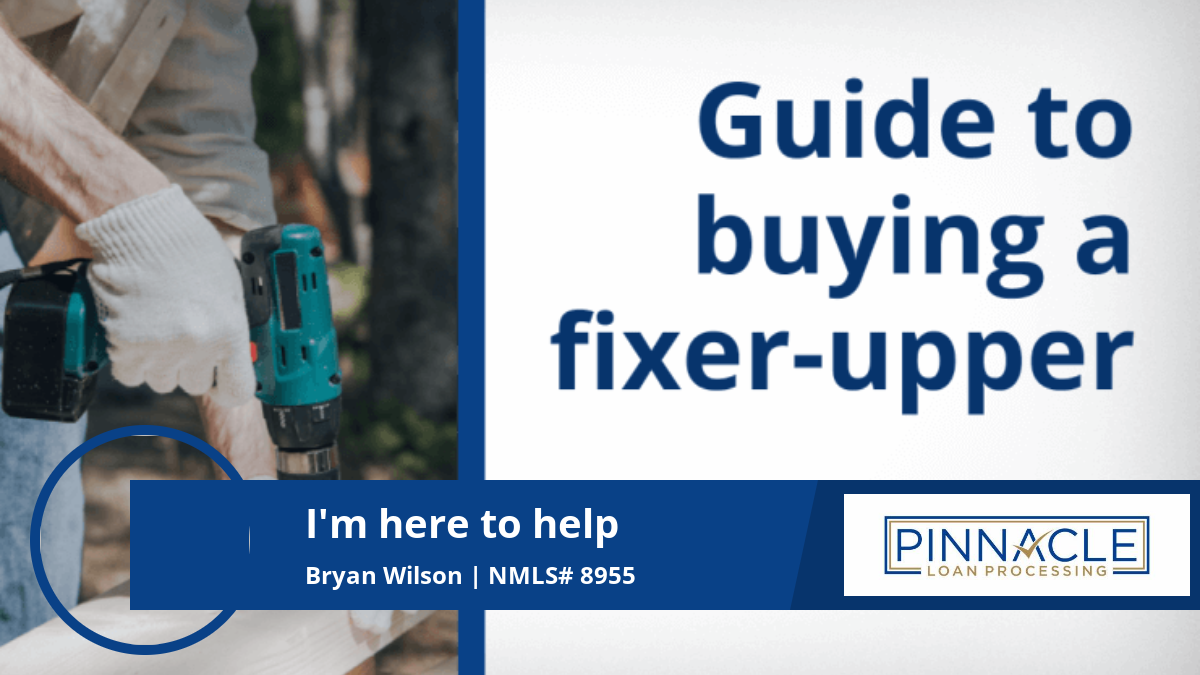Use These Tips To Determine Whether It's Worth Investing in a Fixer-Upper

Found fixer-upper? Follow these seven tips to determine how much it will cost to renovate, how much you can afford, how much to offer, and whether investing in a fixer-upper home is right for you.
•Assess what you can DIY - Tasks like stripping wallpaper or painting are easy enough for amateurs. Advanced work like electrical is best left to the professionals.
•Get a quote for the renovations before making an offer - Have the contractor do a walk-through or at least price the supplies if you plan on doing the work yourself.
•Check the cost of permits.
•Double-check the price of major structural work - Hiring a structural engineer is a good idea if your fixer-upper needs significant structural work. Remember to get all quotes in writing and don't invest in this type of property unless it's at a steep discount.
•Budget for your down payment and closing costs - Special financing options for fixer-uppers are available. Request more information from your trusted mortgage professional.
•Calculate a Fair Market Offer - Work with a real estate agent to help you figure out a fair offer.
•Include Inspection Contingencies - Most home inspection contingencies let you go back to the seller to ask them to do the repairs or pay for the repairs. Alternatively, you could back out of the deal if the inspection reveals something you don't want to deal with.
✅ Benefits of Contract Loan Processing for VA Loans
-
Specialized VA Knowledge
-
VA loans have unique requirements (COE, residual income, funding fee calculations, appraisal requirements).
-
A contract processor experienced in VA loans can spot potential issues early and streamline the process.
-
-
Cost Savings for Lenders
-
No need to hire full-time staff; processors are paid per file.
-
Helps smaller brokerages or lenders manage fluctuating loan volumes without carrying extra payroll.
-
-
Faster Turn Times
-
Contract processors often work remotely and are paid per closed file, so they’re incentivized to move loans quickly.
-
They can push COE requests, follow up on VA appraisals, and ensure VA-specific forms (26-1880, 26-8923) are completed on time.
-
-
Compliance & Accuracy
-
VA has strict guidelines (e.g., allowable fees, seller concessions, and veteran protections).
-
A skilled processor reduces risk of compliance errors that could lead to loan buybacks or funding delays.
-
-
Scalability
-
During high volume seasons (e.g., rate drops, PCS military moves), lenders can bring on extra processors quickly without long-term HR commitments.
-
-
Reduced Loan Officer Burden
-
Lets LOs focus on originating, networking, and serving clients while the processor handles gathering DD-214s, income docs, pest inspection reports (if required), and underwriting conditions.
-
-
Improved Borrower Experience
-
Veterans and active-duty borrowers often value clear communication and speed.
-
A processor who knows the VA process can anticipate documentation needs and prevent last-minute surprises.
-
👉 In short: Contract processors help lenders stay lean, compliant, and efficient, while ensuring veterans have a smoother experience.
Get Your
FREE eBOOK
